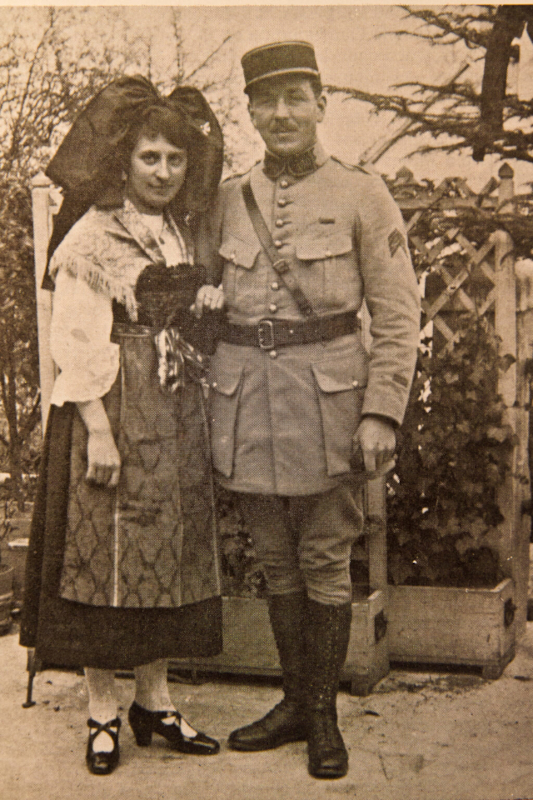Genealogy in Alsace-Lorraine (Elsaß-Lothringen)
Overview: The Challenge of Shifting Sovereignty
Research in the regions of Alsace and Lorraine (known today as the French administrative region of Alsace-Moselle) is uniquely challenging due to its history of alternating French and German rule. The area formally changed hands four times between 1871 and 1945.
This constant shift means that genealogical records for a single village may appear in French, German, or Latin, and place names will have French and German variants (e.g., Strasbourg vs. Straßburg, Metz vs. Mezz). A successful search requires knowing the sovereign power at the time of the event.

| Time Period | Sovereign Power | Primary Language of Records | Genealogical Focus |
|---|---|---|---|
| Pre-1871 | France (since 17th century) | French (Civil), Latin (Church) | Napoleonic Civil Registers (Mairies/Communes) |
| 1871 – 1918 | German Empire (Reichsland) | German | German Civil Registers (Standesämter), Census Records (Volkszählungen) |
| 1919 – 1940 | France | French | Return to French civil registration system |
| 1940 – 1945 | Germany (Third Reich) | German | German records (often re-registered) |
| 1945 – Present | France | French | Modern French civil registration |
Phase 1: Geographic and Linguistic Identification
1. Place Name Conversion
You must determine the name of your ancestral village in both its French and German forms. Records are often indexed using the name relevant to the ruling power at that time.
- Key Departments (Modern French):
- Bas-Rhin (67): (German: Unterelsaß)
- Haut-Rhin (68): (German: Oberelsaß)
- Moselle (57): (German: Lothringen/Mosellothringen)
- Essential Conversion Tools: You'll need to use conversion gazetteers to manage the shifting names. A classic resource is Meyers Gazetteer for the German-era equivalent.
2. Local Dialects
Be aware that many local family names may have been spelled phonetically in records based on the local Alsatian German dialect. Always search for common variations of your surname (e.g., Müller vs. Mueller, Schmidt vs. Schmitt).
Phase 2: Accessing Primary Records
The best news for this region is that the vast majority of civil and church records have been digitized and are available online for free through the French Departmental Archives.
1. French Departmental Archives (Archives Départementales)
The three major archives for the region are:
| Department | Key Records Available | Crucial Searching Tip |
|---|---|---|
| Bas-Rhin (67) | Civil Status (Etat-Civil): Births, Marriages, Deaths (1792+) | Search the German-era records (1871–1918) for documents marked "Zivilstandsregister". |
| Haut-Rhin (68) | Parish Registers (Registres Paroissiaux): Pre-1792 Church Records | Essential for pre-Revolutionary research when civil registration was not mandatory. |
| Moselle (57) | German Era Records: Specific forms from 1871–1918. | Use the French name of the commune, even when looking for German-language records. |
2. Civil Status Records (Etat-Civil / Standesämter)
- French Periods (1792-1871 & 1919-Present): Records are filed by the Mayor (Mairie/Commune) and are generally in French.
- German Period (1871-1918): Records were kept by the Civil Registrar (Standesamt) and are in German on pre-printed forms. This is the period most often missed by researchers.
Phase 3: Key Secondary Resources & Collections
| Resource | Value Proposition | Use for... |
|---|---|---|
| GenWiki (Elsaß & Lothringen) | Comprehensive German-language information on parishes, towns, and genealogical societies. | Locating specific parishes and cross-referencing German place names. |
| FamilySearch Wiki | Excellent guides and links to microfilmed records, especially for the German-era. | Finding index lists and specific record collections outside the main archives. |
| The GeneaBank Collaborative | An indexing project run by French genealogy associations. | Quick lookups for common surnames across the region when archives lack indexes. |
1. Regional history and place names
- Alsace-Lorraine: Translating German and French Names and Place Names
- German Place Names in Alsace
- German Lorraine
- Lists of communes can help you locate an ancestral village:
- The communes of Moselle
- The communes of Haut-Rhin
- The communes of Bas-Rhin
Phase 4: Background (History)
- Alsace–Lorraine, now called Alsace–Moselle (Wikipedia)
- Reichsland Elsaß-Lothringen 1871-1919
- Territorial changes in Germany and areas under German Administration
Genealogy: Be advised these sites may or may not be available in English. Major US based or European based Genealogy sites are NOT included here.
- GenWiki- Elsaß
- GenWiki- Lothringen
- Bas-Rhin archives: civil and parish registers
- Archives of Bas-Rhin: population censuses
- Archives of the Eurometropolis (Strasbourg)
- Archives of Haut-Rhin
- Archives of the Territoire-de-Belfort
- Archives of Meurthe-et-Moselle
- Archives of the Meuse
- Moselle Archives
- Archives of the Vosges
- Baden-Württemberg Archive
- Parish Archives of the Canton of Bern
- France Overseas National Archives
French Maps
- Old Maps Online (France)
- Perry-Castañeda Library Map Collection France Maps
- Old Maps Online (Alsace)
- EdMaps (France)
- How to find old maps of France online
Phase 5: Summary of Best Practices
- Date First, Language Second: Determine the year of the event first, as this dictates the language, the legal system, and the sovereignty.
- Utilize Departmental Archives: Treat the three French Departmental Archives (67, 68, 57) as your primary, free, and comprehensive source.
- Cross-Reference Names: Use both the French and German spellings of the place name in your search.
- Be Flexible: Be prepared to search for multiple spelling variations of surnames, as transcription rules varied greatly over 200 years.
Credits and Licensing
Compiled by Mark Rabideau, Opa & Professional Genealogist.
All materials licensed: CC BY-ND 4.0 by eirenicon llc.